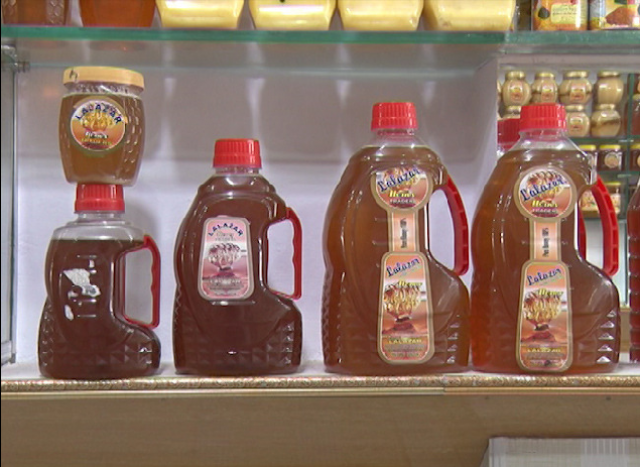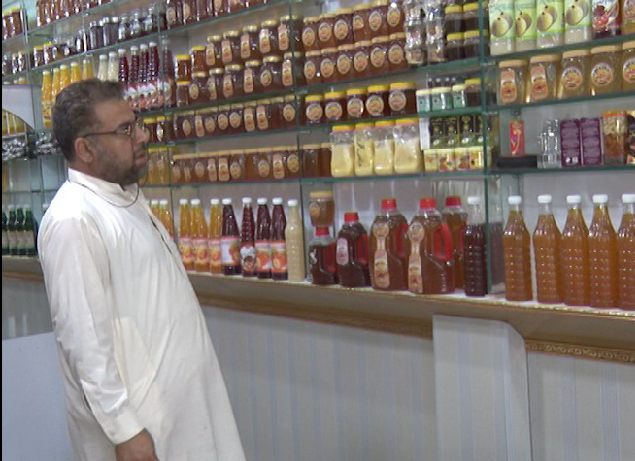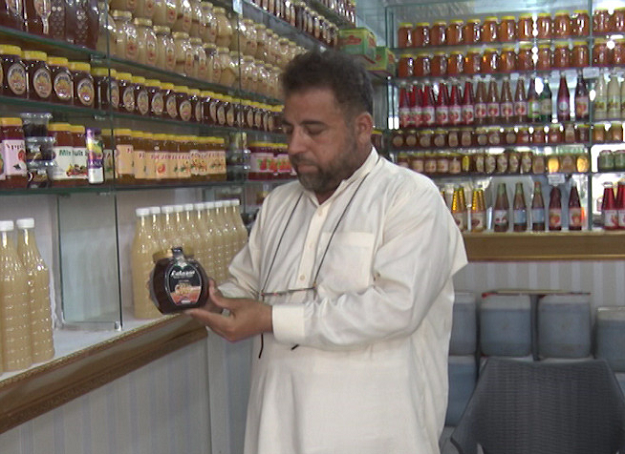Beekeepers demand industrial status for honey trade
Say despite earning millions in international market honey market is deprived of basic facilities

PHOTO: EXPRESS
In the 80s, the Australian government provided bees to Tarnab Farms Peshawar, which was the root of honey business in the periphery of Peshawar. However, four decades have passed but modern technologies not have been used for extra production and the industry has not received government patronage.
 PHOTO: EXPRESS
PHOTO: EXPRESSWhile talking to The Express Tribune, the president of the bee market and of the Beekeeper's Association Naeem Qasimi said that the bee-keeping business is still running on a private level, and despite them earning millions of dollars, it is still deprived of industrial status.
"The honey business in Tarnab market has been booming despite no privileges from the government side. Around 1,200 shops in the market are associated with honey trade, most of which are exporting to Gulf countries and earning millions," stated Qasimi.
Pakistan needs to set performance targets for investment in manufacturing sector
According to Qasimi, the K-P districts of Karak, Kohat, frontier region Peshawar, Nowshera’s Manki area, district of Attock in Punjab and Chakwal are the areas where beekeepers are producing high-quality honey, while raw honey has been exported to Gulf countries which have added to the public exchequer.
"Our only demand from K-P and federal government was to ink a treaty of exporting honey to the European Union and the United States so that we could enhance our market. It would also create job opportunities for unemployed youth.
"I along with few other beekeepers have laid the foundation of the Pakistan Bee Keepers Association in 1996, but beside the Australian help and financial and technical help, we didn't get anything from the federal government," he added.
 PHOTO: EXPRESS
PHOTO: EXPRESSQasimi also stressed how the beekeepers have suffered in the war against terrorism.
"Military operation in the tribal district, a source for the beekeepers, has been hit the most. War in Afghanistan has also affected the trade of honey with Peshawar," he said.
“We are working on a self-help basis for the expanding of our business, but we still need a state-of-the-art laboratory to test the honey so that it is up to the international market standards. Multinational companies are earning millions by buying honey from here, while we are still struggling due to lack of patronage,” Qasimi added.



















COMMENTS
Comments are moderated and generally will be posted if they are on-topic and not abusive.
For more information, please see our Comments FAQ